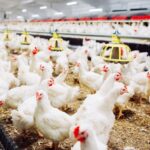Mobile technology is revolutionizing agriculture across the globe, and South African farmers are increasingly adopting mobile farming apps to streamline operations, improve efficiency, and enhance yields. These apps provide valuable tools and information right at farmers’ fingertips, helping them manage their farms more effectively. Here are ten techniques South African farmers can follow to leverage mobile farming apps effectively:
- Crop Management: Use mobile farming apps to track crop growth stages, monitor pest and disease outbreaks, and schedule irrigation and fertilization based on real-time data and weather forecasts.
- Soil Health Monitoring: Employ apps that offer soil testing and analysis features. These apps can provide insights into soil fertility, pH levels, and nutrient deficiencies, helping farmers make informed decisions about fertilization and soil management practices.
- Weather Forecasting: Integrate weather forecasting capabilities into farming apps to receive timely updates on rainfall, temperature changes, and severe weather alerts. This information allows farmers to plan planting, harvesting, and other critical activities accordingly.
- Market Information: Utilize apps that provide market prices, trends, and demand forecasts for agricultural products. Access to this data empowers farmers to make strategic decisions about crop selection, pricing, and marketing strategies.
- Financial Management: Choose apps with features for budgeting, expense tracking, and income monitoring. These tools help farmers manage finances more efficiently, track profitability, and plan investments for future seasons.
- Precision Farming: Embrace precision farming techniques enabled by mobile apps, such as GPS mapping, drone imagery analysis, and variable rate technology. These tools optimize input usage, reduce waste, and maximize crop yields.
- Livestock Management: For livestock farmers, use apps that offer features for tracking animal health records, breeding cycles, milk production, and vaccination schedules. These tools streamline management tasks and improve animal welfare.
- Training and Education: Engage with apps that provide access to agricultural training resources, expert advice, and best practices. Continuous learning through these platforms enhances farmers’ skills and knowledge, leading to better farm management practices.
- Networking and Collaboration: Participate in apps that facilitate farmer networking, community forums, and collaboration opportunities. Sharing experiences, insights, and local knowledge with peers can foster innovation and collective problem-solving.
- Data Security and Privacy: Prioritize apps that ensure data security and privacy. Choose reputable platforms that comply with data protection regulations and offer secure data storage and transmission protocols.
Mobile farming apps are transforming agriculture in South Africa by empowering farmers with data-driven insights, efficient management tools, and access to market information. By adopting these ten techniques, South African farmers can harness the full potential of mobile technology to optimize productivity, sustainability, and profitability on their farms. Embracing these innovations not only benefits individual farmers but also contributes to the overall growth and resilience of the agricultural sector in the country.
Join 'Farmers Mag' WhatsApp Channel
Get the latest Farming news and tips delivered straight to your WhatsApp
CLICK HERE TO JOIN






